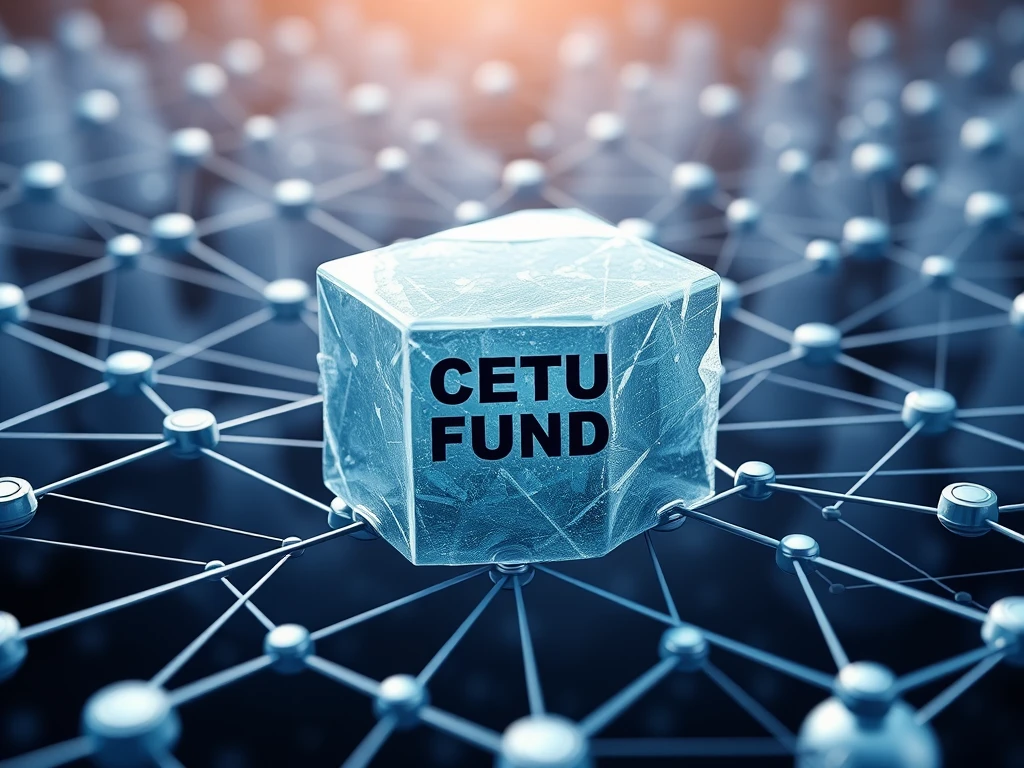Crucial Sui Vote on $162M Frozen Cetus Funds Ignites Decentralization Debate

Welcome back to Finance Redefined, your weekly dive into the world of decentralized finance (DeFi). This week, a major event on the Sui network has sent ripples through the entire crypto space, reigniting a fundamental debate: just how decentralized are our decentralized protocols? The controversy centers around a vote regarding $162 million in funds frozen after a significant exploit on the Cetus decentralized exchange.
The Sui Vote: A Decentralization Flashpoint
The Sui community recently faced a critical decision following a substantial exploit on the Cetus DEX. Attackers managed to steal over $220 million in digital assets. However, Sui validators acted swiftly, freezing $162 million of the stolen funds. This rapid response, while potentially beneficial for victims, immediately sparked a heated debate about Decentralization.
On one side, proponents of strict Decentralization criticized the validators’ ability to pause fund transfers, viewing it as a sign of central control. They argue that true decentralization means no single entity or group should have such power. On the other hand, many investors and users applauded the validators’ coordinated action, seeing it as a necessary measure to protect users and combat malicious activity. The ability to quickly freeze funds prevented further movement by the attackers.
The debate culminated in a governance vote on May 29th. Sui validators overwhelmingly approved a proposal to return the frozen $162 million to the exploit victims. The vote passed with a strong majority (90.9% in favor), clearing the way for Cetus to begin its recovery process and user repayment plan. This decision highlights the complex trade-offs between strict ideological decentralization and practical security measures in the face of exploits.
Understanding the Cetus Exploit and Fund Recovery
The Cetus exploit, which occurred on May 22nd, resulted in the loss of over $220 million worth of digital assets from the decentralized exchange operating on the Sui network. Within hours of the incident, Sui validators coordinated to freeze a significant portion of the stolen funds, totaling $162 million. This rapid action was crucial in limiting the attacker’s ability to cash out or disperse the assets further.
Following the successful governance vote, the frozen $162 million will be transferred to a multisig wallet. This wallet will hold the funds in trust until they can be distributed back to the affected users according to the recovery plan led by Cetus. While the exploit itself was a major blow, the community’s ability to freeze a large portion of the funds and vote for their return offers a path towards partial recovery for victims.
DeFi Strategies Evolve: Ethereum Foundation’s Move
Moving beyond the Sui incident, the broader DeFi ecosystem continues to evolve. A notable development this week involved the Ethereum Foundation (EF) engaging more deeply with DeFi protocols. The EF borrowed $2 million in GHO, a decentralized stablecoin native to the Aave Protocol. Aave founder Stani Kulechov highlighted this as a significant step, noting that the EF is now not only supplying ETH to Aave but also borrowing from it, completing a ‘full DeFi circle’.
GHO is governed by Aave’s decentralized autonomous organization (DAO), which manages key parameters like interest rates and collateral requirements. This move signals a potential shift in the EF’s treasury management strategies, embracing more sophisticated DeFi tools and interactions. It demonstrates a growing confidence from major entities in the maturity and utility of decentralized lending protocols.
Beyond DeFi: Diverse Crypto News Insights
This week’s Crypto News landscape also featured other significant developments:
- **High-Stakes Bitcoin Trading:** Well-known Hyperliquid trader James Wynn significantly increased his leveraged long position on Bitcoin, reaching $1.25 billion after closing other profitable trades. This highlights the high-risk, high-reward nature of leveraged trading in the current market.
- **Decentralized AI Growth:** Early blockchain adopters are increasingly focusing on decentralized AI ecosystems like Bittensor (TAO). These platforms are seen as potential engines for growth, allowing ideas to attract community support and funding outside traditional venture capital structures. DNA Fund CEO Chris Miglino emphasized their firm’s deep involvement in the TAO ecosystem.
- **Decentralizing Telecom:** Decentralized physical infrastructure networks (DePIN) like Helium continue to demonstrate real-world utility. Nova Labs COO Frank Mong explained how decentralizing telecommunication benefits both small businesses (by hosting hotspots for revenue) and large telcos (by accessing network telemetry and expanding coverage in dead zones more cost-effectively).
Market Reactions and Future Outlook
While specific events like the Sui vote and EF’s DeFi move capture attention, the broader market saw some retracement this week. According to market data, most of the top 100 cryptocurrencies by market cap ended the week in the red. Memecoins Fartcoin and Pudgy Penguins (PENGU) token were among the biggest losers.
The ongoing debate around Decentralization versus practicality, exemplified by the Sui vote, will likely continue to shape protocol design and governance. As the DeFi space matures, we can expect more entities, including foundations, to explore and utilize decentralized financial tools. Meanwhile, innovations in areas like decentralized AI and telecom show the expanding potential of blockchain technology beyond just finance.
Conclusion
This week in Finance Redefined underscored the dynamic nature of the crypto world. The Sui vote on the frozen Cetus funds highlighted the persistent tension between ideological Decentralization and practical security measures needed to protect users from exploits. Simultaneously, the Ethereum Foundation’s engagement with DeFi protocols like Aave signals increasing institutional comfort with decentralized finance. Alongside these developments, the growth in decentralized AI and telecom projects demonstrates the diverse applications of blockchain technology. As the market navigates these technical, governance, and strategic shifts, staying informed through reliable Crypto News sources remains essential.









